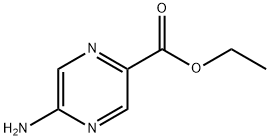Hi, I’m curious about something related to infant care. After my baby gets their routine shots, I’ve noticed they sometimes sleep longer than usual. Is this extra sleep a normal reaction to vaccines, or could it signal something else? How common is it for babies to have changes in sleep patterns after immunizations, and are there ways to help them feel more comfortable during this period? Could this be a sign of their immune system working, or should parents be concerned?
Do Babies Sleep More After Vaccines? Understanding the Post-Vaccine Sleep Pattern
Related Encyclopedia

- 60603-13-6
- C13H16N2O5S
- 312.34200
- All (0)
- China (0)
- (0)

- 103-90-2
- C8H9NO2
- 151.16
- All (35)
- China (32)
- (35)
- 20675-21-2
- C14H19NO3
- 249.30600
- All (0)
- China (0)
- (0)

- 64315-36-2
- C8H5D4NO2
- 155.18700
- All (0)
- China (0)
- (0)

- 3251-55-6
- C9H11NO3
- 181.19000
- All (1)
- China (0)
- (1)

- 1693-37-4
- C9H11NO2
- 165.19
- All (1)
- China (0)
- (1)

- 120595-80-4
- C14H16NNaO8
- 349.27
- All (0)
- China (0)
- (0)

- 956595-86-1
- C26H34N2O4
- 438.55900
- All (0)
- China (0)
- (0)

- 16110-10-4
- C14H14D3NO8
- 330.30500
- All (0)
- China (0)
- (0)
- 756835-98-0
- C18H19N3O3
- 325.36200
- All (0)
- China (0)
- (0)
Related Products More >
-
- 103-90-2
- 1.0000
- GlassBottlekg
-
- 3251-55-6
- Request For Quotation
- Bottle,barrel,cargo,container,etc.
-
- 3251-55-6
- Request For Quotation
-
- 1794817-30-3
- Request For Quotation
- 25kg/Cardboard Drum
-
- 1693-37-4
- Request For Quotation
-
- 103-90-2
- Request For Quotation
- Bag
-
- 103-90-2
- Request For Quotation
- 25KG
-
- 103-90-2
- Request For Quotation
- 25kg/Cardboard Drum




Another important factor is mild inflammation at the injection site or slight systemic effects like low-grade fever. These reactions can contribute to fatigue and encourage extended rest periods. For example, a pediatrician might note that a six-month-old infant receiving the DTaP or MMR vaccine often exhibits increased napping and a calmer demeanor at home. This behavioral change is directly tied to immune activation, illustrating the interconnectedness of immunological processes and neurological regulation.
In clinical care, observing these sleep changes can inform caregivers about expected post-vaccination behavior. If a baby is sleeping more but remains alert when awake, continues regular feeding, and shows no signs of distress, these extended sleep episodes are a healthy indication of immune engagement. Understanding these mechanisms helps parents and healthcare providers anticipate typical responses, ensuring both safety and reassurance during routine vaccination schedules.
This post-vaccination drowsiness differs from excessive lethargy, which is rare and may indicate a more significant reaction. Normal increased sleep is temporary, lasting 24–48 hours, and is not accompanied by other concerning symptoms like high fever or unresponsiveness. It reflects the baby’s immune system focusing energy on developing protective immunity rather than on active wakefulness, similar to how the body prioritizes rest during mild illness to support recovery.
A common misconception is that increased sleep signifies harm, but it is instead a sign of the immune system functioning as intended. Unlike prolonged fatigue from infections, which involves widespread inflammation and pathogen replication, vaccine-related sleepiness is a controlled response to a targeted immune challenge.
Understanding this pattern helps caregivers distinguish normal immune adaptation from adverse reactions. Allowing the baby to sleep as needed supports their body’s efforts to build long-term immunity, ensuring the vaccine’s protective benefits are maximized. This temporary change in sleep patterns is a small, natural price for safeguarding against serious, preventable diseases in early life.
Chemically, vaccine formulations often include adjuvants like aluminum salts, which enhance antigen presentation by stimulating immune cells. While adjuvants are metabolized safely, their transient inflammatory effects can contribute to mild systemic symptoms, including somnolence. Additionally, some vaccines contain inactivated toxins or viral particles that, while non-infectious, still trigger localized and systemic immune responses. The body’s effort to process these components, coupled with the energy demands of mounting an adaptive response, creates a physiological state where sleep becomes a restorative mechanism to facilitate tissue repair and immune cell function.
In practical terms, increased sleep after vaccination is generally a normal, short-lived reaction, lasting 24–48 hours, and does not indicate harm. Parents often observe this pattern during routine immunizations, such as those for diphtheria, tetanus, and pertussis (DTaP), or measles, mumps, and rubella (MMR). From a medical perspective, healthcare providers reassure caregivers that sleep supports recovery by lowering metabolic rates and reducing stress hormone levels, which aids immune efficiency. However, excessive lethargy or refusal to feed warrants medical evaluation to rule out rare adverse reactions like fever-induced dehydration or allergic responses.
Cross-disciplinary insights from pediatrics and sleep science highlight that infant sleep patterns are highly sensitive to physiological stressors, including vaccination. This phenomenon underscores the importance of post-immunization care, such as ensuring hydration and comfort, to mitigate discomfort. In broader contexts, understanding vaccine-related sleep changes informs public health messaging, helping caregivers anticipate normal reactions and adhere to vaccination schedules, ultimately strengthening community immunity and reducing disease burden.